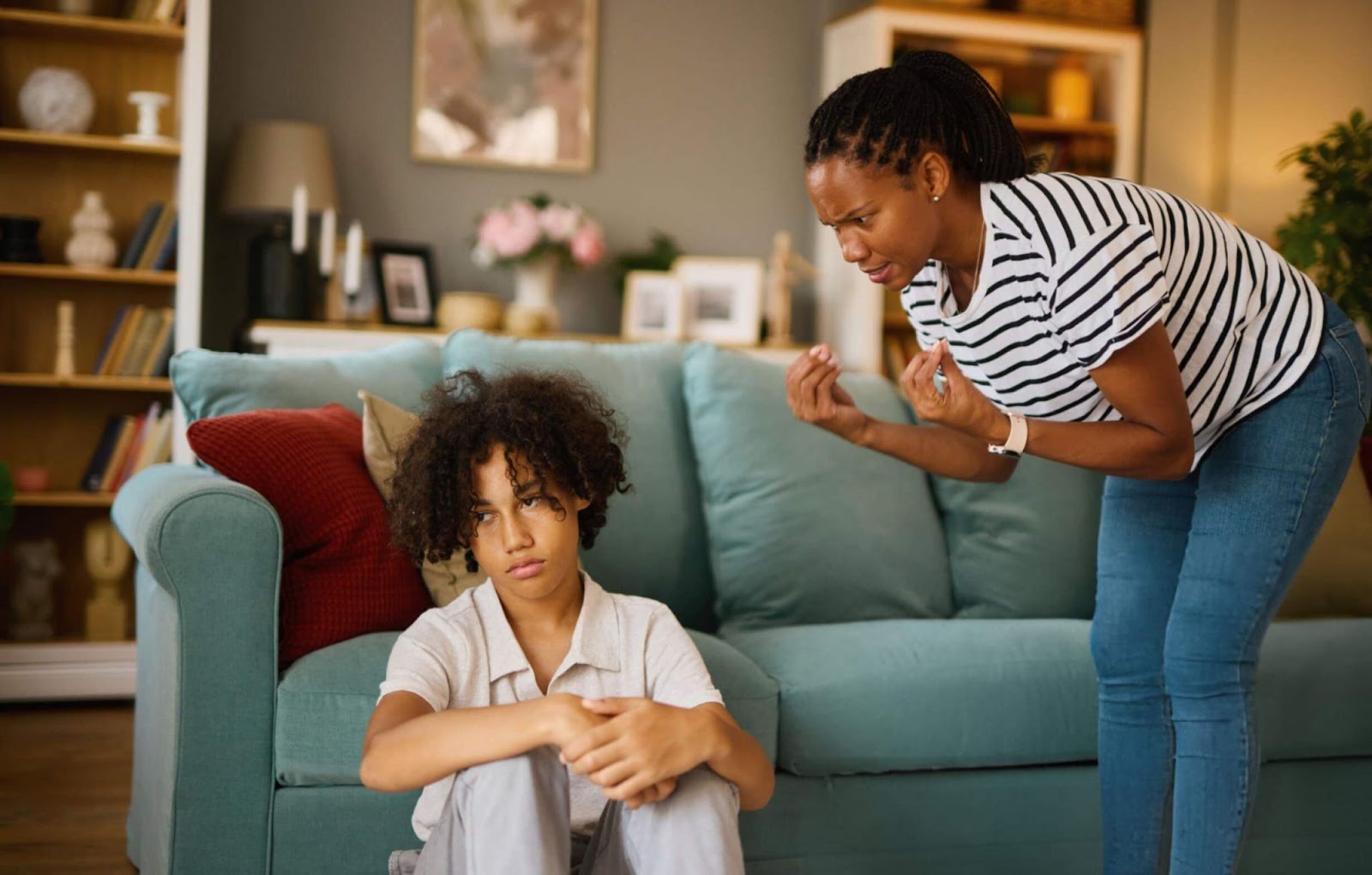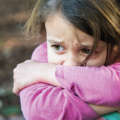Modern parenting is a reality that has been likened to balancing on a tight rope riding on a unicycle holding burning torches. We adore our children so passionately. But in some cases, the passion of love gets caught up in the frustration and exhaustion, or, as we might say, even anger. Being an angry parent is the feeling we least like to talk about during playdates or when picking up our children in school, but one that we need to be honest with and have an understanding of.
Why Angry Parents Are More Common Than You Think

Recent research reveals a striking truth about parenting anger that might surprise you. Fourteen percent of parents said their child gets angry more often than their same-aged peers, and these same parents often worry about their own anger management techniques. But here’s what’s really eye-opening – this isn’t just about “difficult” children or “bad” parents. It’s about the complex dance between parent and child emotions that happens in every household.
Think of family dynamics like a delicate ecosystem. When one member of the family experiences big emotions, it ripples through everyone else like stones thrown into a still pond. Your child’s frustration can trigger your own stress response, creating what researchers call an “emotional contagion” effect. Suddenly, you’re not just dealing with your child’s tantrum – you’re battling your own rising tide of anger.
The most fascinating part? One in seven think their child gets angrier than peers of the same age and four in 10 say their child has experienced negative consequences when angry. This suggests that many families are navigating similar challenges, yet we often feel isolated in our struggles with anger.
The Science Behind the Storm: Understanding Angry Parent Angry Child Cycles
When we talk about angry parent angry child dynamics, we’m diving into some pretty complex territory. Research from longitudinal studies across nine countries shows us something crucial: mothers and fathers with higher irritability, as well as mothers with lower self-efficacy beliefs about anger regulation, were more prone to use harsh parenting and had adolescent children who were also high in irritability.
This isn’t about blame – it’s about understanding. Your anger doesn’t exist in a vacuum, and neither does your child’s. They’re part of an intricate system where emotions bounce back and forth like a tennis match nobody really wants to play.
Consider this scenario: You’ve had a stressful day at work, traffic was terrible, and you walk into a house that looks like a toy store exploded. Your stress hormones are already elevated when your child whines about dinner. Your nervous system, already on high alert, interprets this as another threat. Before you know it, you’re snapping at your little one, who then escalates their own emotional response. It’s like adding kindling to a fire that was already smoldering.
The research tells us that mothers’ harsh parenting affected child emotion regulation more strongly than fathers’, whereas harsh parenting emanating from fathers had a stronger effect on child aggression. This doesn’t mean moms and dads are fundamentally different in their capacity for gentle parenting – it highlights how our children respond differently to various forms of anger expression.
When Children Are Angry at Parents
Let’s flip the script for a moment. Sometimes we get so caught up in managing our own anger that we forget to really listen to what our children are trying to tell us when they’re angry at parents. That defiant “I hate you!” or the explosive tantrum isn’t just random chaos – it’s communication, albeit in a language that feels foreign to our adult sensibilities.
Children’s anger often masks other emotions: fear, disappointment, feeling unheard, or simply being overwhelmed by big feelings they don’t yet have words for. When your four-year-old screams because you said no to candy before dinner, they’re not just being difficult. They’re experiencing genuine disappointment and frustration, and their developing brain doesn’t yet have the tools to process these emotions smoothly.
Understanding this can transform how we respond. Instead of seeing their anger as a personal attack or a behavior to squash immediately, we can start to see it as information. What need isn’t being met? What boundary feels too rigid? What skill do they need to learn to handle disappointment better?
Here’s where it gets interesting: research shows that dysfunctional anger regulation increases the likelihood of later comorbid internalizing problems but not vice versa. This means how we help our children learn to manage anger now has lasting implications for their emotional wellbeing later in life.
The Ripple Effect: How Angry Parents Impact Family Harmony
The effects of angry parents extend far beyond the moment of explosion. Like ripples in a pond, our anger touches every corner of family life, often in ways we don’t immediately recognize. When parents are frequently angry, children may feel constantly on edge, never knowing when the next outburst will occur, creating a home environment that feels more like walking on eggshells than the safe haven we want to provide.
Think about the last time you lost your temper with your child. How did the rest of the evening unfold? Did bedtime feel more difficult? Was your child more clingy or more distant? These aren’t coincidences – they’re your child’s nervous system responding to the emotional storm they just weathered.
The research paints a clear picture: children who grow up with frequently angry parents often develop anxiety, fear, and low self-esteem. But here’s the hopeful twist – awareness is the first step toward change. When we understand how our anger affects our children, we can begin to make different choices.
Consider Sarah, a mother of two who realized her morning anger was setting the tone for everyone’s entire day. She noticed that when she snapped at her kids during the breakfast rush, they became more argumentative with each other, had difficulty focusing at school, and seemed more sensitive to minor disappointments throughout the day. Once she made this connection, she started waking up fifteen minutes earlier to give herself buffer time, transforming not just her mornings but her children’s entire daily experience.
How to Deal with Angry Parents: Strategies for the Adults in the Room
If you’re reading this and thinking, “Okay, I get it – my anger affects my kids. But how do I actually stop being so angry?” you’re asking exactly the right question. The journey from angry parent to emotionally regulated parent isn’t about suppressing your feelings or pretending everything is sunshine and rainbows. It’s about developing new tools and strategies that help you navigate the inevitable storms of family life with more grace.
The Pause That Changes Everything
The space between trigger and response is where transformation happens. When you feel that familiar surge of anger rising – your child just wrote on the wall with a permanent marker, or they’re having a meltdown in the grocery store – try this: take one deep breath and silently count to five. This isn’t about controlling your child’s behavior; it’s about giving your prefrontal cortex (the thinking part of your brain) a chance to come back online before your amygdala (the emotional reaction center) takes over completely.
During this pause, ask yourself: “What is my child trying to communicate right now?” and “What do they need from me in this moment?” Sometimes the answer is clear boundaries, sometimes it’s comfort, and sometimes it’s just a parent who can stay calm in the storm of their big emotions.
The Power of Self-Compassion
Here’s something that might surprise you: being hard on yourself about your anger often makes it worse. When you beat yourself up for losing your temper, you’re actually adding more stress to an already overwhelmed system. Instead, try treating yourself with the same kindness you’d show a good friend going through a tough time.
“I lost my temper today, and that’s human. Tomorrow I can try again with new strategies.” This isn’t making excuses – it’s creating the emotional safety you need to make real changes.
Building Your Emotional Vocabulary
One of the most powerful tools for managing anger is learning to identify and name the emotions that come before it. Anger is often a secondary emotion, masking feelings like frustration, disappointment, fear, or overwhelm. When you can catch these primary emotions early, you can address them before they escalate into anger.
Try this: throughout the day, pause and check in with yourself. “What am I feeling right now?” You might notice you’re feeling rushed, underappreciated, worried about your child’s behavior, or simply tired. Each of these emotions gives you information about what you need – maybe it’s asking for help, taking a five-minute break, or adjusting your expectations for the day.
Creating Calm: Practical Strategies for Parents Angry Moments

Let’s get practical. When you’re in the thick of a challenging parenting moment, theoretical advice about emotional regulation can feel about as useful as an umbrella in a hurricane. Here are concrete strategies you can use right in the moment when anger starts to rise:
The STOP Technique
- Stop what you’re doing
- Take a deep breath
- Observe what’s happening (both in your child and in yourself)
- Proceed with intention rather than reaction
Physical Strategies for Immediate Relief Your body holds anger in specific ways – tense shoulders, clenched jaw, rapid heartbeat. Learning to recognize these physical signals gives you an early warning system. When you notice them:
- Roll your shoulders back and down
- Soften your jaw
- Take three deep breaths, making your exhale longer than your inhale
- If possible, excuse yourself for a moment to splash cold water on your face or step outside
The 24-Hour Rule For bigger behavioral issues that trigger intense anger, implement a 24-hour rule. Unless it’s a safety issue, tell your child, “I need some time to think about how to handle this. We’ll talk about it tomorrow.” This gives you time to process your emotions and plan a response that aligns with your values rather than your immediate emotional reaction.
Breaking the Cycle: Helping Both Parent and Child Regulate
The beautiful thing about working on your own anger regulation is that you’re simultaneously teaching your child invaluable life skills. Children learn more from what they observe than what they’re told, and when they see you taking deep breaths, using calm problem-solving, and treating mistakes as learning opportunities, they’re absorbing these strategies at a deep level.
Model What You Want to See When you make a mistake and lose your temper, use it as a teaching moment. “I got really frustrated earlier and raised my voice. That wasn’t the best choice. Next time I feel that frustrated, I’m going to take some deep breaths first. What could you do next time you feel really mad?”
Create a Family Calm-Down Plan Work together to create strategies everyone can use when emotions run high. This might include:
- A designated calm-down space with soft blankets and books
- A family breathing technique everyone knows
- A signal (like a hand gesture) that means “I need a break”
- A playlist of calming music for tense moments
Practice During Peaceful Times Don’t wait for the storm to practice your new skills. During calm moments, practice deep breathing with your children, talk about different emotions and how they feel in the body, and role-play how to handle frustrating situations.
Advice for New Parents Baby Shower: Starting Strong from the Beginning
If you’re expecting or have recently welcomed a new baby, you might be wondering how to prevent anger from becoming a pattern in your family from the start. The truth is, some level of frustration and overwhelm is inevitable in parenting – it’s part of the human experience. But there are things you can do early on to build a foundation of emotional regulation.
Set Realistic Expectations New parents often struggle with anger because reality doesn’t match their expectations. Babies cry – it’s their only form of communication. Toddlers have meltdowns – their brains aren’t developed enough for consistent emotional control. When you understand that these behaviors are normal

developmental stages rather than personal failures, you’re less likely to take them personally and react with anger.
Build Your Support Network Early Isolation increases anger and overwhelm. Before things get difficult, identify people who can help: family members who can babysit for an hour, friends who can bring dinner, or neighbors who can lend a hand. Many new parents hesitate to ask for help, but remember – accepting support models healthy coping strategies for your children.
Practice Self-Care Without Guilt This isn’t about bubble baths and spa days (though those are nice too). It’s about the basic maintenance your emotional system needs to function well: adequate sleep when possible, nutritious food, movement, and adult conversation. When your basic needs are met, you have more capacity to handle the inevitable challenges of parenting.
The Long View: Why Managing Your Anger Matters for Your Child’s Future

The work you do now to understand and manage your anger isn’t just about creating more peaceful days (though that’s certainly a wonderful benefit). Research consistently shows that children who grow up with emotionally regulated parents develop better social skills, stronger relationships, and greater resilience in facing life’s challenges.
When you model healthy anger management, you’re giving your child a roadmap for their own emotional journey. They learn that it’s okay to feel angry, but there are constructive ways to express and process that anger. They see that mistakes can be repaired, that emotions are temporary, and that love remains constant even during difficult moments.
Think of it this way: every time you choose to pause instead of react, every time you apologize for losing your temper and discuss better choices, every time you model self-compassion after a difficult day, you’re making deposits in your child’s emotional bank account. These deposits will serve them throughout their lives as they navigate their own relationships, career challenges, and eventually, their own parenting journey.
Finding Your Way Forward: Embracing the Journey of Growth
When we conclude this discussion of the angry parent experience, keep in mind that there is no such thing as perfect parenting – and that is a good thing. The anxiety to become an ideal parent is the cause of the same anger that we are seeking to control. Rather, make the goal to be a good enough parent, where the mistakes are defined as moments to learn, and the hard times are the moments to rehearse the new skills.
The path to a better anger management is not one you would ever find yourself entering and never leaving. It is a life-long discipline, such as playing a musical instrument or gardening. There are days when everything will go smoothly and calmly. On other days you will be out of temper by breakfast-time. The two experiences are included in the learning process.
The mere fact you are reading this article with some thought about your anger and the desire to be better to your children falls into the category of concerned and caring parents who are determined to improve. The very fact that you are committed to your children is a gift to them even when your performance is not flawless.
This week, select one of the strategies in this article to work with. Perhaps it is the STOP technique, perhaps some more buffer time to your morning routine or perhaps it is just giving yourself more self-compassion when things go wrong. One of them is that small and steady changes can bring lasting change.
It is good to remember that a furious parent is a person who loves his or her children and wants to do the best for them. When you get angry you are not a bad parent, you are a human being. And the fact that you are ready to deal with it, comprehend it and collaborate with it is what makes you the type of parent that will raise healthy and emotionally strong children.
The storm will blow, the calm will come back and during those calm times, you will have a chance to bond with your children in ways that make you remember why you choose this journey, despite its difficulty, as the most rewarding adventure of your life.



